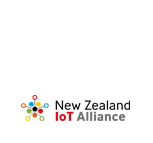Reflecting on the recent “Checking the Pulse: IoT Transforming Healthcare” webinar we hosted last week, it’s evident that we are witnessing a healthcare revolution, largely enabled by the Internet of Things (IoT). The potential of IoT to transform healthcare is immense, with its capacity to collect, analyse, and transmit data in real-time, paving the way for more effective monitoring, diagnosis, and treatment of patients.
From our speakers, we learnt that the use of sensors and IoT in healthcare can manifest itself in various ways. Wearable sensors and smart medical devices enable remote monitoring, particularly critical for managing chronic conditions, allowing healthcare providers to track patients’ health data in real-time and intervene promptly when necessary. This approach not only enhances patient care but also fosters a proactive healthcare model.
Personalisation of care is another significant benefit. IoT’s data-driven nature allows for treatments tailored to individual patients. Data collected from wearables can inform personalised fitness and nutrition plans, contributing to overall well-being. These devices also encourage patients to take an active role in their healthcare journey, promoting a deeper understanding and involvement in their care.
In healthcare facilities, IoT contributes to operational efficiency. Asset tracking and inventory management, ensured by IoT solutions, streamline operations, maintaining the functionality and availability of critical equipment. This not only improves healthcare delivery but also reduces operational costs.
The real-world benefits of IoT in healthcare for everyday people are profound. Wearable IoT devices can detect abnormalities in vital signs early, leading to timely medical interventions and preventing severe health episodes. This early detection and intervention system is particularly life-changing for individuals with chronic illnesses or conditions requiring constant monitoring.
IoT’s role in reducing healthcare costs cannot be overstated. With better management of chronic conditions and early interventions, hospital admissions can be reduced, making healthcare more affordable and accessible for all. For the elderly and those with chronic conditions, IoT devices offer the freedom to live independently, fostering a sense of independence and dignity while ensuring they are monitored and cared for.
One of the standout innovations discussed in our webinar, such as Alimetry’s non-invasive technology for sensing stomach activity, marks a significant advancement in diagnostic tools. These developments are making procedures less invasive and more accurate, significantly enhancing patient comfort and diagnosis accuracy.
The transformative potential of IoT in healthcare, paired with the need for ethical considerations and robust data privacy, calls for a collaborative effort to ensure these technologies benefit everyone. We look forward to exploring these opportunities together, shaping a future where technology and healthcare converge for the betterment of all.
In case you missed our webinar last week, you can catch-up here. Thank you to Hanie Yee (Alimtery), Sam Madanian (AUT), Boris Bacic (AUT), Chengwei Feng (AUT), and Josh Wilson (Spark) for your insights!
It’s coming close to the end of the year and we’re excited to come together for a few drinks and nibbles on us! If you’re a member, we welcome you to join us at the Good George In Wynyard Quarter on 14 December at 5 pm. Register here.
Read full news here: How IoT is transforming healthcare | November Newsletter






